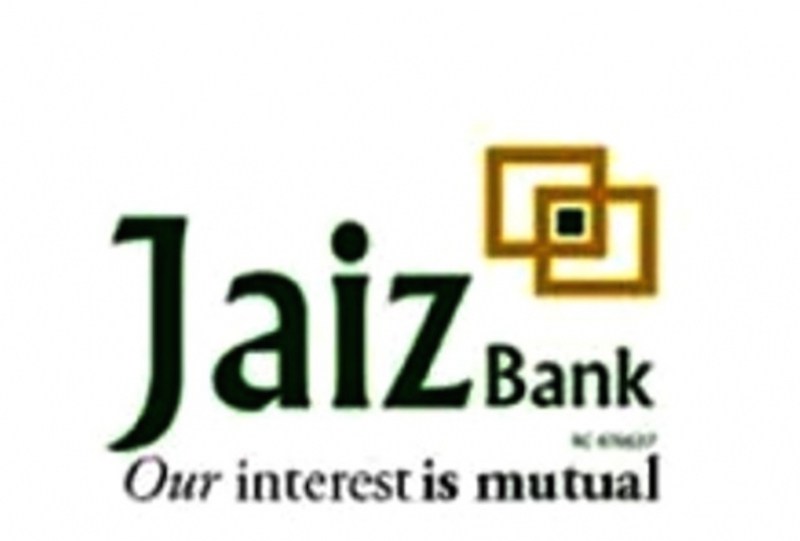- Jaiz Bank Targets N15.9b Profit in Five Years
Jaiz Bank Plc will grow its income and profitability consecutively over the next five years, with pre-tax profit for the period expected to be about N15.86 billion. Management of Jaiz Bank yesterday at the Nigerian Stock Exchange (NSE) outlined the five-year growth plan of the pioneer non-interest bank, with an assurance that it will sustain year-on-year growth over the next five years.
Managing Director, Jaiz Bank Plc, Mr. Hassan Usman, said overall vision of the bank is to become the leading non-interest financial institution in Sub Saharan Africa.
He said the bank has been positioned to sustain its growth trajectory, pointing out that the bank has the necessary resources to achieve its growth targets.
According to the five-year financial forecast, total income is expected to be about N81.17 billion while profit after tax is projected at N11.09 billion for the five-year period. Gross income is expected to rise to N10.07 billion in 2018 and subsequently to N12.59 billion, N15.73 billion, N19.27 billion and N23.51 billion in 2019, 2020, 2021 and 2022 respectively.
Profit before tax is projected to rise to N1.33 billion in 2018 and grow consecutively to N2.03 billion, N3.01 billion, N43.03 billion and N5.47 billion in 2019, 2020, 2021 and 2022 respectively. After taxes, net profit will rise to N927 million in 2018 and grow further to N1.42 billion in 2019. Profit after tax is projected to jump to N2.11 billion in 2020 and rise consecutively to N2.82 billion and N3.83 billion in 2021 and 2022 respectively.
Balance sheet of the bank is also expected to increase over the years. Total assets is projected at N123.61 billion in 2018 and subsequently to N150.5 billion, N182.6 billion, N220.02 billion and N262.80 billion in 2019, 2020, 2021 and 2022 respectively. Deposit is projected to rise consecutively to N88.55 billion, N113.34 billion, N142.81 billion, N177.09 billion and N216.05 billion in 2018, 2019, 2020, 2021 and 2022 respectively. Shareholders’ fund is projected to rise to N28.6 billion in 2018 and grow consecutively to peak at N35.23 billion by 2022.
Shareholders’ return is also expected to grow over the years. Return on equity is expected to firm up to 4.39 per cent in 2018 and improve consecutively to 4.87 per cent, 6.92 per cent, 8.79 per cent and 11.22 per cent in 2019, 2020, 2021 and 2022 respectively.
Usman said the bank’s growth strategy of focussing on the real sector, though painstaking, will ensure sustainable growth and better returns over the years.
According to him, Jaiz Bank wants to develop small and medium enterprises (SMEs), grow with them and support them not only for profit making but to ensure the country achieves real growth.
He said the bank would soon start to disburse $20 million financial lifeline to SMEs as part of the commitments of the bank to drive the growth of the real sector of the economy. Jaiz Bank and Islamic Corporation for the Development of Private Sector (ICD), the development arm of Islamic Development Bank (IDB), had recently signed a $20 million line of agreement to finance SMEs in Nigeria.
“We shall continue to internally develop new customers, new markets and new product for both our physical and virtual channels. We remain committed to continuous up-scaling of our governance mechanism to meet the highest operating standards. Cost efficiency is at the heart of our value creation model. We shall strive to be a low cost operator,” Usman said.
He noted that while the bank would continue to expand its operations across the country by opening more branches, it will significantly leverage on technology to reach the nooks and crannies of the country and bring the semi-banked and unbanked population into the formal economy.
Jaiz Bank had recorded significant growths in key performance indicators in 2017 with the Islamic bank making an average of a double of previous profit on every unit of transaction during the period. Key extracts of the audited report and accounts of Jaiz Bank for the year ended December 31, 2017 showed that pre-tax profit-margin-which measures the underlining profitability of the company- doubled from 5.5 per cent in 2016 to 11 per cent in 2017. The pre-tax profit margin denotes the efficiency of the core operational and administrative cost management, and it is usually taken as a more definitive index of performance than top-line margins.
The report indicated a well-rounded performance as gross earnings rose by 40 per cent from N6.18 billion in 2016 to N8.10 billion in 2017. Gross profit grew by 34 per cent to N6.705 billion in 2017 as against N5.003 billion in 2016. Profit before tax jumped by 160.6 per cent from N343.02 million in 2016 to N894.01 million in 2017. However, the bank’s tax provision leapt by 1,024 per cent from N31.75 million in 2016 to N356.89 million in 2017. This moderated the net profit growth to 14.7 per cent from N311.27 million in 2016 to N356.89 million in 2017.
Chief Executive Officer, Nigerian Stock Exchange (NSE), Mr Oscar Onyema, said Jaiz Bank has demonstrated ability to grow sustainably, urging the bank to continue to uphold high corporate governance.
Doyen of Stockbrokers, Mr. Sam Ndata, commended Jaiz Bank for continuing to keep investors up-to-date on its operations.
Former president of Chartered Institute of Stockbrokers (CIS) and Vice Chairman/Chief Executive Officer, Capital Assets Limited, Mr. Ariyo Olushekun also commended the management of the bank for its commitments to sound corporate practices.


 Forex3 weeks ago
Forex3 weeks ago
 Naira3 weeks ago
Naira3 weeks ago
 Billionaire Watch3 weeks ago
Billionaire Watch3 weeks ago



 Naira3 weeks ago
Naira3 weeks ago






 Naira3 weeks ago
Naira3 weeks ago




 Naira2 weeks ago
Naira2 weeks ago






 Naira2 weeks ago
Naira2 weeks ago




 Naira4 weeks ago
Naira4 weeks ago























